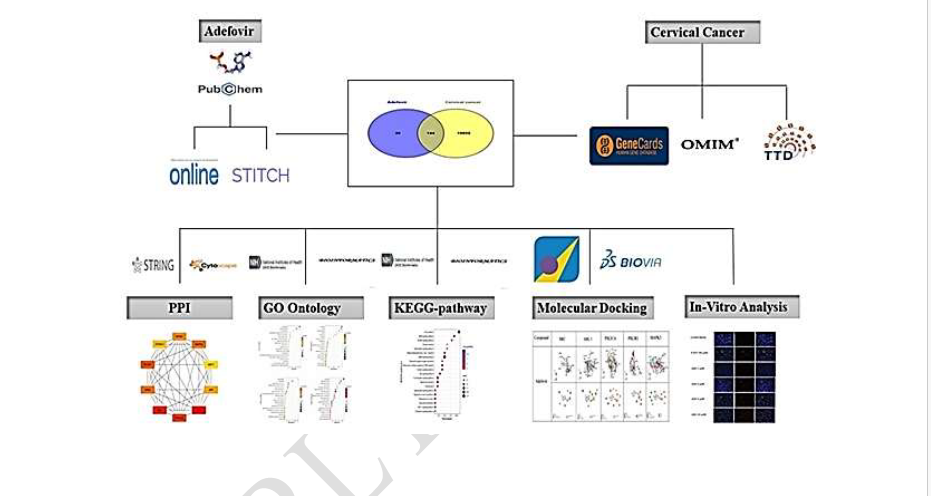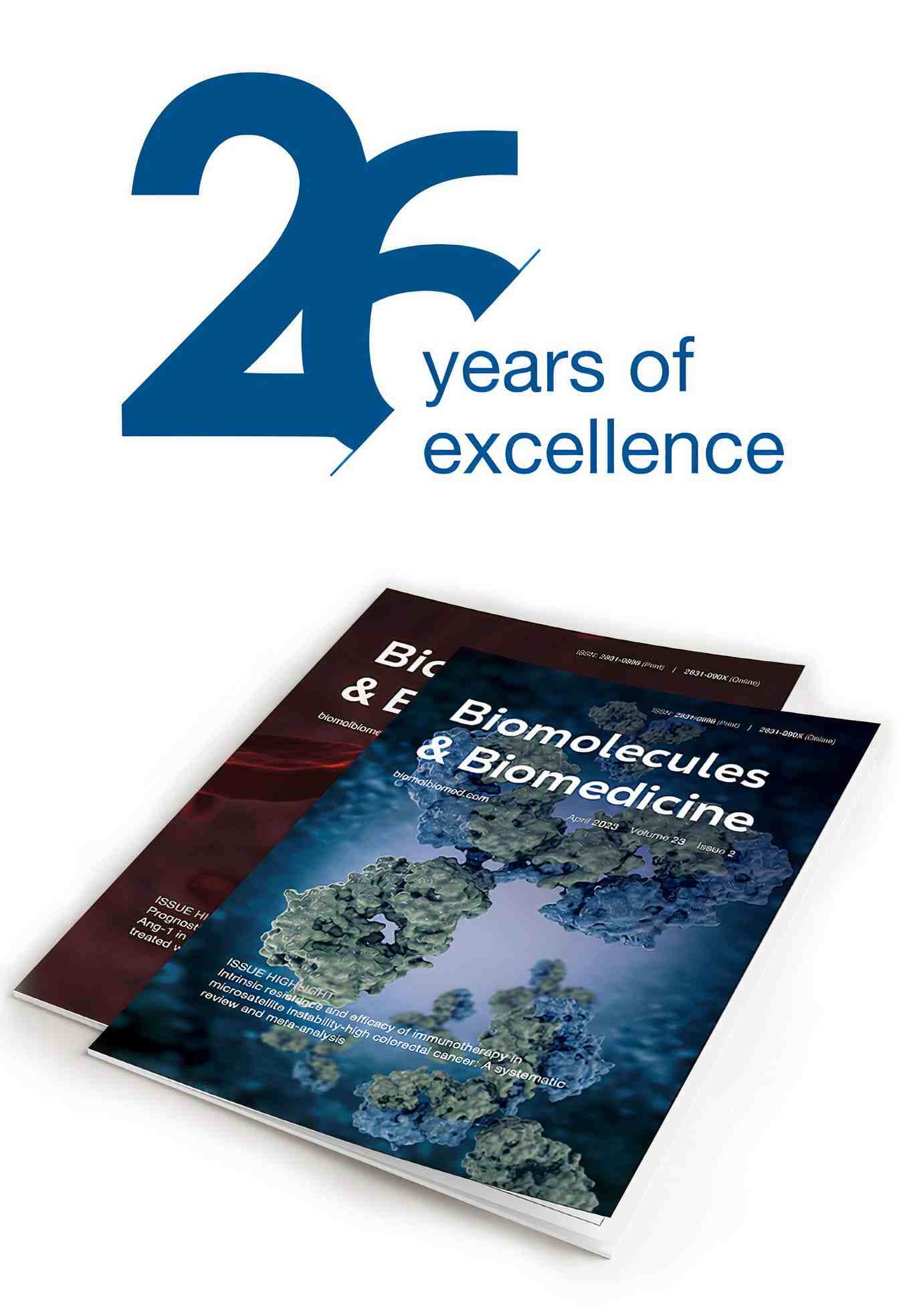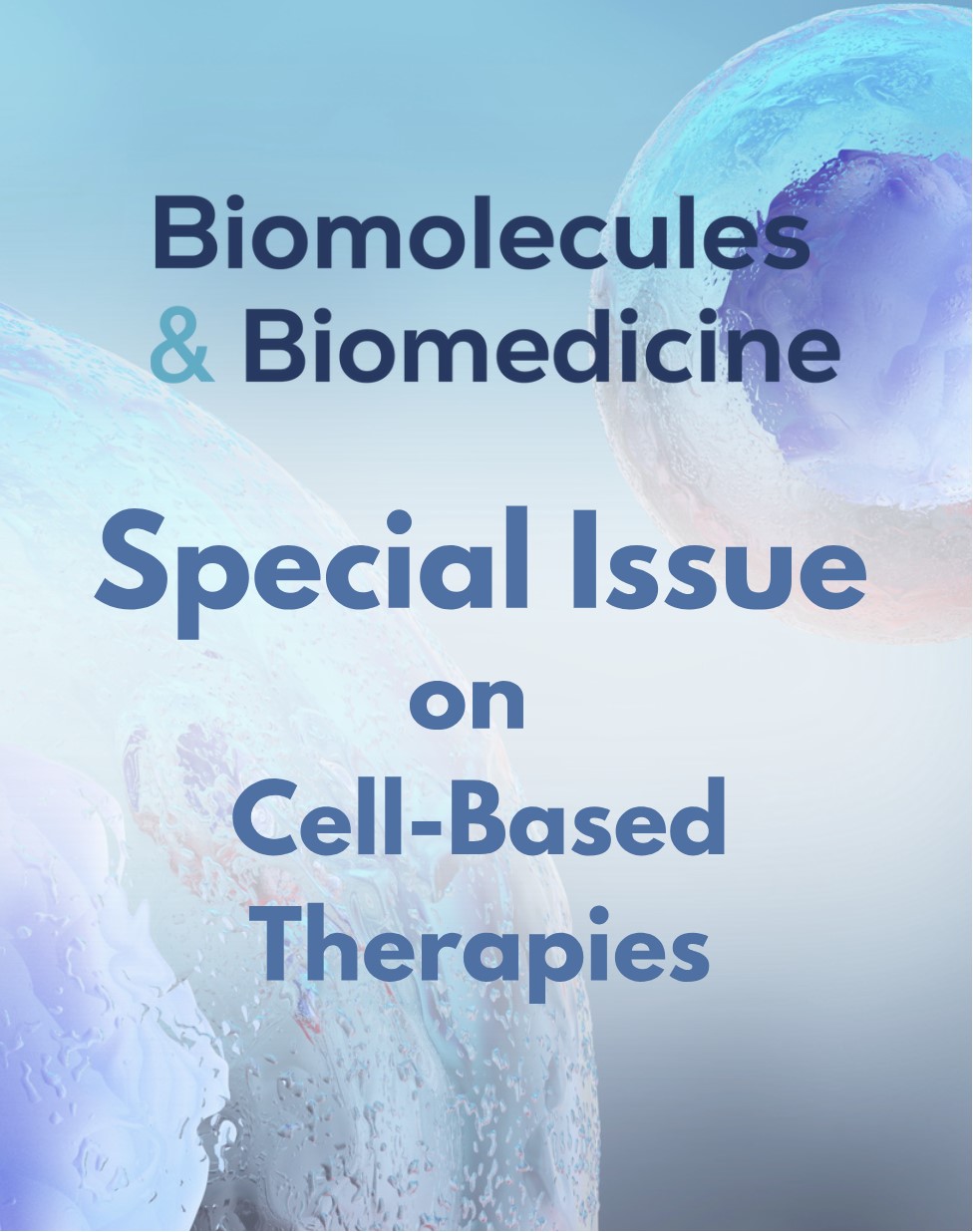Adefovir anticancer potential: Network pharmacology, anti-proliferative & apoptotic effects in HeLa cells
DOI:
https://doi.org/10.17305/bb.2025.12058Keywords:
Adefovir, HeLa cells, apoptosis, angiogenesis, network pharmacologyAbstract
Cervical cancer presents a significant healthcare challenge due to recurrent disease and drug resistance, highlighting the urgent need for novel therapeutic strategies. Network pharmacology facilitates drug repurposing by elucidating multi-target mechanisms of action. Adefovir, an acyclic nucleotide analog, has shown promising potential in cervical cancer treatment, particularly in HeLa cells. In vitro studies have demonstrated that adefovir inhibits HeLa cell proliferation by enhancing apoptosis while maintaining a low cytotoxicity profile at therapeutic concentrations, making it an attractive candidate for further exploration. A combined network pharmacology and in vitro study was conducted to investigate the molecular mechanism of adefovir against cervical cancer. Potential gene targets for adefovir and cervical cancer were predicted using database analysis. Hub targets were identified, and protein-protein interaction (PPI) networks were constructed. Molecular docking assessed adefovir's binding affinity to key targets. In vitro cytotoxic assays, including 3-(4,5-Dimethylthiazol-2-yl)-2,5-diphenyltetrazolium bromide (MTT) and crystal violet assays, were performed using 96-well plates to evaluate anti-proliferative effects in HeLa cells. Apoptosis was assessed via p53 immunocytochemistry Enzyme-Linked Immunosorbent Assay (ELISA), while Vascular Endothelial Growth Factor ELISA (VEGF ELISA) was used to measure cell proliferation. Venn analysis identified 144 common targets between adefovir and cervical cancer. Network analysis revealed key hub targets involved in oncogenic pathways. Molecular docking demonstrated strong binding between adefovir and Mitogen-Activated Protein Kinase 3 (MAPK3) and SRC proteins. In vitro, adefovir significantly suppressed HeLa cell viability, with an Inhibitory Concentration 50 (IC50) of 7.8 µM, outperforming 5-Fluorouracil (5-FU). Additionally, it induced apoptosis via p53 activation and inhibited cell proliferation through VEGF suppression. These integrated computational and experimental findings suggest that adefovir exerts multi-targeted effects against cervical cancer. Its promising preclinical efficacy warrants further investigation as a potential alternative therapy.
Citations
Downloads

Downloads
Published
Issue
Section
Categories
License
Copyright (c) 2025 Muzammal Mateen Azhar, Tahir Maqbool, Fatima Ali, Awais Altaf, Muhammad Atif, Zulfiqar Ali, Zahid Habib Qureshi, Muhammad Naveed, Tariq Aziz, Rania Ali El Hadi Mohamed, Fakhria A. Al-Joufi, Maher S. Alwethaynani

This work is licensed under a Creative Commons Attribution 4.0 International License.









